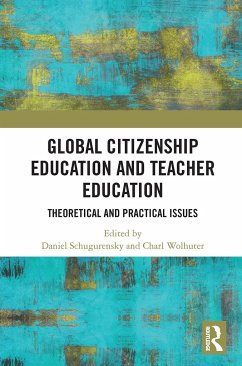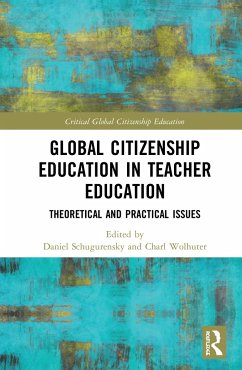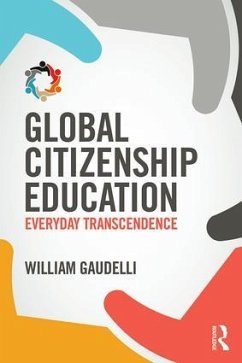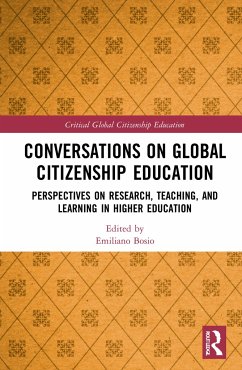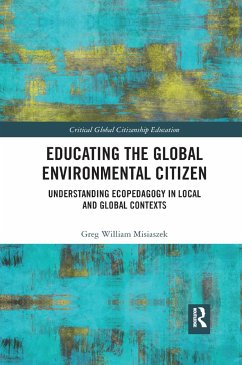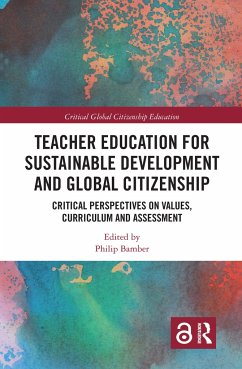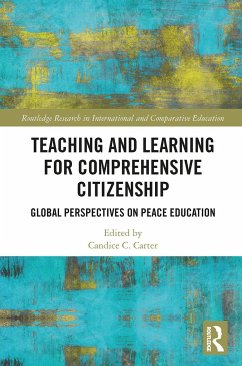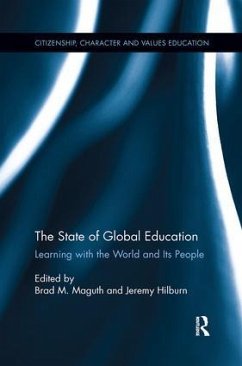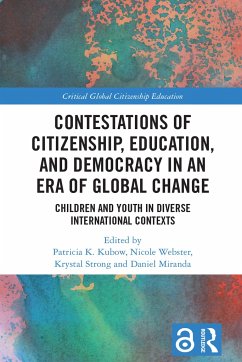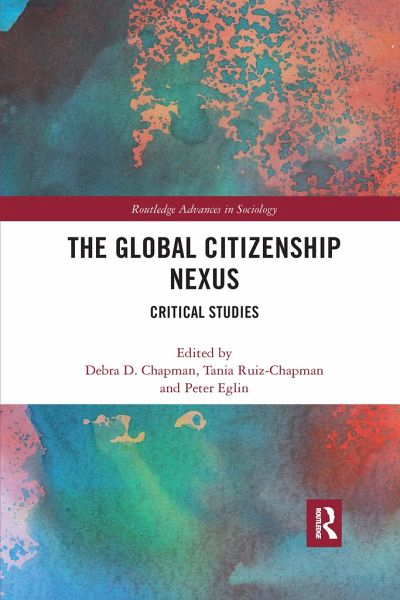
The Global Citizenship Nexus
Critical Studies
Herausgegeben: Chapman, Debra; Ruiz-Chapman, Tania; Eglin, Peter
Versandkostenfrei!
Versandfertig in 6-10 Tagen
45,99 €
inkl. MwSt.
Weitere Ausgaben:

PAYBACK Punkte
23 °P sammeln!
In the spirit of Ivan Illich's 1968 speech 'To hell with good intentions', the book takes aim at a ubiquitous form of contemporary ideology, namely the concept of global citizenship.Its characteristic discourse can be found inhabiting a nexus of four complexes of 'ruling' institutions, namely universities with their international service learning, the United Nations and allied international institutions bent on global citizenship education, international non-governmental organizations and foundations promoting social entrepreneurship, and global corporations and their mouthpieces pitching corp...
In the spirit of Ivan Illich's 1968 speech 'To hell with good intentions', the book takes aim at a ubiquitous form of contemporary ideology, namely the concept of global citizenship.
Its characteristic discourse can be found inhabiting a nexus of four complexes of 'ruling' institutions, namely universities with their international service learning, the United Nations and allied international institutions bent on global citizenship education, international non-governmental organizations and foundations promoting social entrepreneurship, and global corporations and their mouthpieces pitching corporate social responsibility and sustainable development. The question is: in the context of Northern or Western imperialism and US-led, neoliberal, global, corporate capitalism, and the planetary Armageddon they are wringing, what is the concept of global citizenship doing for these institutions? The studies in the book put this question to each of these four institutional complexes from broadly political-economic and post-colonial premises, focusing on the concept's discursive use, against the background of the mounting production of the global non-citizen as the global citizen's 'other'.
Addressed to all users of the concept of global citizen(ship) from university students and faculty in global studies to social entrepreneurs and United Nations bureaucrats, the book's studies ultimately ask whether the idea helps or hinders the global quest for social and economic justice.
Its characteristic discourse can be found inhabiting a nexus of four complexes of 'ruling' institutions, namely universities with their international service learning, the United Nations and allied international institutions bent on global citizenship education, international non-governmental organizations and foundations promoting social entrepreneurship, and global corporations and their mouthpieces pitching corporate social responsibility and sustainable development. The question is: in the context of Northern or Western imperialism and US-led, neoliberal, global, corporate capitalism, and the planetary Armageddon they are wringing, what is the concept of global citizenship doing for these institutions? The studies in the book put this question to each of these four institutional complexes from broadly political-economic and post-colonial premises, focusing on the concept's discursive use, against the background of the mounting production of the global non-citizen as the global citizen's 'other'.
Addressed to all users of the concept of global citizen(ship) from university students and faculty in global studies to social entrepreneurs and United Nations bureaucrats, the book's studies ultimately ask whether the idea helps or hinders the global quest for social and economic justice.





